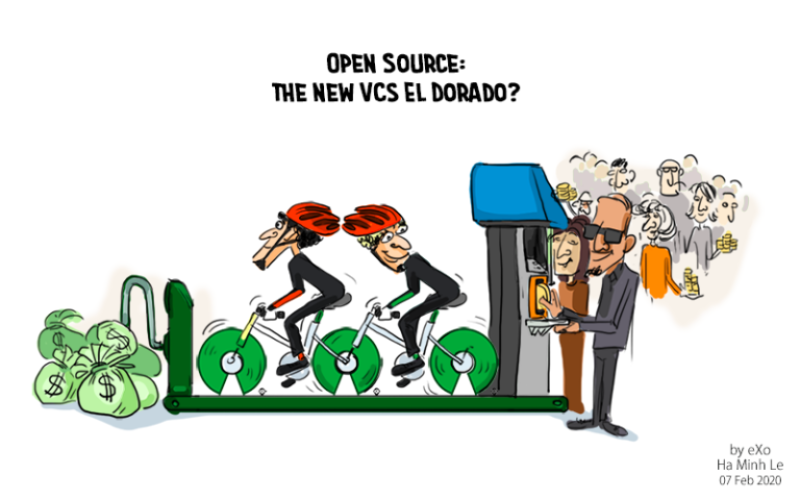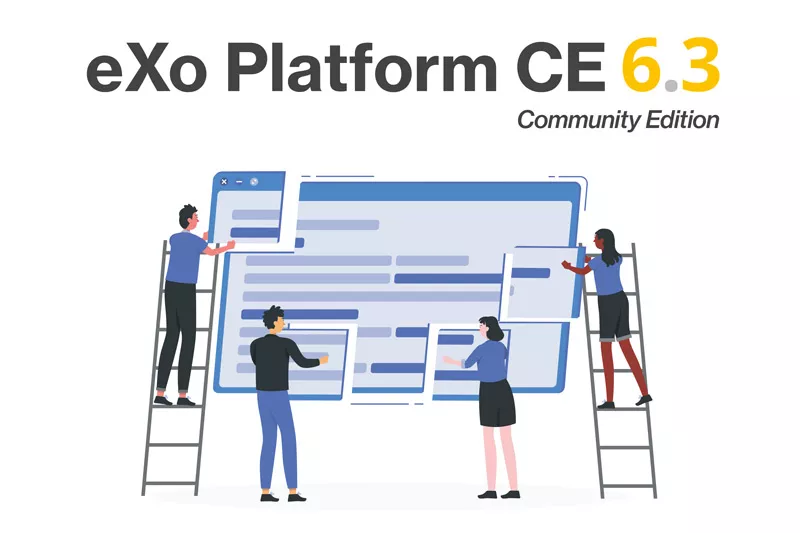- Brahim Jaouane
- February 7, 2020
Cartoon of the Week: Open Source: New VCs El Dorado?
Open source is, without a doubt, the default choice for modern IT solutions. The accelerating rhythm of open source reduces costs and improves technical capabilities compared to IT systems.
Before, it was necessary to argue that Open Source was not a “sub-solution”. Today, it is necessary to justify not taking it into account.

Open Source: A Goose with Golden Eggs for VCs
Over the past several years, open-source software companies were at the center of some major deals: IBM acquired Red Hat, GitHub acquired Semmle, Microsoft acquired Citus Data (a startup that uses PostgreSQL), F5 completed the acquisition of NGINX…
These companies often make the core of their software available as open source, meaning people can download and use the code however they want.
Open source software companies make money by offering additional features or better technical support to business users.
According to Crunchbase data, the annual capital invested in open source software and development tool startups has increased at a compound annual growth rate of about 10% over the last five years.
In addition, the returns on these investments are attractive since open source software and development tool startups have seen more than $2 billion invested in the space in 2019 alone, according to Crunchbase data.
Over the last ten years, there have been several mergers and acquisitions of open source software. However, there is a general upward trend in the annual number of acquisitions. This applies both to the acquisition habits of companies in the open source software category and to those outside this category that make acquisitions of open source software companies.
Open source software may often be free to use, but it’s also a Big Business With a Big Funding. What do you think about this ?
- Tags: Open source, Cartoon
5/5 - (1 vote)
I am a Digital Marketing specialist specialized in SEO at eXo Platform.
Passionate about new technologies and Digital Marketing.
With 10 years' experience, I support companies in their digital communication strategies and implement the tools necessary for their success.
My approach combines the use of different traffic acquisition levers and an optimization of the user experience to convert visitors into customers.
After various digital experiences in communication agencies as well as in B2B company, I have a wide range of skills and I am able to manage the digital marketing strategy of small and medium-sized companies.
Related posts
- All
- eXo
- Digital workplace
- Open source
- Internal communication
- Collaboration
- News
- intranet
- Future of work
- workplace
- Knowledge management
- Employee engagement
- Employee experience
- Employee productivity
- onboarding
- Employee recognition
- Change management
- Cartoon
- Digital transformation
- Infographic
- Remote work
- Sneak Peek
- Solutions
- Thought leadership
- Tips & Tricks
- Tutorial
- Uncategorized
Leave a Reply
( Your e-mail address will not be published)
Connexion
0 Comments
Commentaires en ligne
Afficher tous les commentaires


